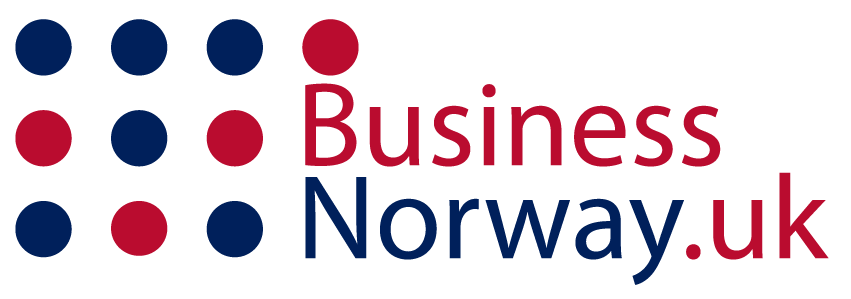When we look at international business, Norway stands out. It has a clear and fair system and fights against corruption. This Scandinavian country offers a stable place for businesses to grow.
Its rules are clear and fair, making us trust the Norwegian market. Knowing how Norway handles governance and rules helps us see the chances for business there.
Understanding Transparency in Business Regulations
In the world of business, being open is key to building trust. Transparency helps businesses act ethically and be accountable. This leads to a fair and trustworthy environment for everyone.
The Importance of Transparency
Transparency is very important in business. It makes companies more trustworthy and builds strong relationships. Open communication helps businesses follow rules and meet customer needs.
It also stops corruption and helps ethical practices grow.
Key Factors Contributing to Transparency
In Norway, several things help make businesses transparent. Laws require companies to be open and accountable. The public and civil groups also play a big role by keeping an eye on businesses.
Groups like Transparency International help by checking on business ethics. They push for open data to build trust.
Transparency vs. Opacity in Business Practices
Transparency and secrecy are two different worlds in business. Transparency builds trust, while secrecy can lead to doubt and corruption. Companies that are open face less trouble and grow stronger.
The Norwegian Approach to Corruption
Norway fights corruption with strong laws and a push for openness. It has many groups working to make both public and private sectors honest. By looking at Norway’s anti-corruption efforts, we see how it keeps corruption low.
Norway’s Anti-Corruption Framework
Norway’s fight against corruption starts with a solid set of rules. The Norwegian National Authority for Investigation and Prosecution of Economic and Environmental Crime is key. It makes sure everyone follows the rules and looks into economic crimes.
This helps make ethical business the standard. The work of government and others shows how important it is to have everyone involved in keeping business honest.
Successful Case Studies of Low Corruption
Many Norwegian companies show the good side of low corruption. They grow well and have a good name because they follow the rules. Companies that are open and fair attract the best people and customers.
This makes them stand out. It shows how Norway’s way of doing business values honesty.
The Role of Citizens in Transparency
People in Norway play a big part in keeping things open. They make sure companies and public places are honest. This helps our democracy grow stronger.
It makes sure everyone is doing the right thing. A public that knows what’s going on helps Norway stay committed to fighting corruption.

Benefits of Operating in a Transparent Environment
Working in a clear and open way improves how we connect with others and our reputation. Companies that are open build strong trust with their stakeholders. This trust helps them gain credibility and a good name.
This strong base keeps customers loyal and brings in more investors.
Trust and Credibility with Stakeholders
Trust is key in today’s business world. Being open makes us accountable and helps us talk openly. This strengthens our bonds with customers, investors, and the community.
As we create a clear space, our companies are seen as honest. This boosts our credibility and reputation. It also leads to loyal customers and lasting partnerships.
Enhanced Competitive Advantage
Being open gives us an edge over others. Open practices help us make better decisions, leading to new ideas and quick action. These qualities help us stand out in the Norwegian market.
Companies that are transparent can quickly adjust to changes. This drives growth and success.
Attraction of Foreign Investment
Transparency draws in foreign investors. They prefer places with little corruption, as it lowers risks. This trust makes our business environment attractive.
It brings in investment, leading to growth and a strong economy in Norway. This benefits all sectors.
How Transparency Affects Business Growth
A clear regulatory environment is key for business growth. It improves market access and regulatory clarity. For businesses looking to grow, understanding these rules can be tough. A clear set of rules makes it easier to start and grow a business.
Regulatory Clarity and Market Access
Clear regulations help companies deal with compliance easily. This makes it simpler to enter local markets. In Norway, clear rules help both local and international businesses access the market.
Reduction of Compliance Costs
Clear rules mean lower compliance costs. This lets businesses use their resources better. With less money spent on rules, they can invest in growing their business.
Encouraging Innovation and Entrepreneurship
A supportive regulatory environment boosts innovation and entrepreneurship. Norway supports new businesses with various initiatives. This makes it easier for entrepreneurs to start, creating jobs and a vibrant economy.
| Aspect | Impact of Transparency |
|---|---|
| Regulatory Clarity | Facilitates quicker market access |
| Compliance Costs | Reduces financial burden on businesses |
| Innovation | Encourages new ventures and ideas |
| Entrepreneurship | Increases business startups and job opportunities |
Key Regulations Supporting Transparency in Norway
Norway is dedicated to a clear business environment. It has strong tax rules and a well-run tax system. This helps businesses follow rules, making the economy fair and just.
The Tax Administration’s Role
The tax administration is key in making sure businesses follow tax laws. This helps keep the system fair and open. In Norway, the tax system is clear, helping businesses know what they must do. This leads to a strong and growing economy.
Financial Reporting Requirements
Norway has strict rules for financial reports. These rules help businesses be honest about their money. This honesty is key for making good choices and building trust.
Public Access to Government Data
Norway lets everyone see government data. This helps people understand how the government works. It also makes businesses more open and honest. This way, everyone can see how the economy works, making it more open and fair.
| Aspect | Description | Impact on Business |
|---|---|---|
| Tax Administration | Oversees compliance with tax regulations | Enhances accountability and trust |
| Financial Reporting | Mandatory adherence to accounting standards | Ensures accuracy and reliability in financial disclosures |
| Public Data Access | Open data policies for accessing government data | Encourages transparency and civic engagement |
Strategies for Navigating Regulatory Frameworks
To succeed in Norway’s business world, it’s key to understand its rules. Working with local authorities and knowing how they work helps a lot. This way, we stay up to date with important laws and follow them.
Engaging with Local Authorities
Actively talking to local authorities is a smart move. It lets us get important info and advice. This helps us avoid breaking rules and builds trust with local groups.
Utilizing Professional Guidance
Getting help from experts is also vital. Lawyers and consultants who know Norwegian business law offer great advice. Their knowledge helps us deal with complex rules and stay on the right side of the law.
Building Relationships in the Industry
Networking and making friends in the business world is key. Working with others helps us learn and grow. It also leads to good partnerships that help everyone involved.

The Role of Technology in Promoting Transparency
In Norway, technology is key in making business practices more open. E-government efforts make it easier to get information. This helps everyone follow rules better and talk more easily.
By using digital services, the public sector shows it cares about being open. This makes a welcoming space for everyone involved.
E-Government Initiatives
Norway’s e-government shows how tech can help transparency. Digital tools make it simpler for businesses to follow rules. This cuts down on red tape and makes sure everyone can see important info.
This leads to a place where trust and honesty are key. It’s good for everyone.
Data Transparency Tools
For businesses to stay on the right side of the law, they need to be open with data. There are tools like online portals and reporting systems that help. These tools let everyone see what they need quickly.
By using these tools, companies can be more open. This makes it easier for people to work with them and trust what they do.
Blockchain Applications in Business
Blockchain is changing how businesses are open. It keeps records safe and unchangeable. This builds trust in how things are done.
We see blockchain making a big difference in finance and supply chains. It helps make things more transparent.
| Technology | Application | Impact on Transparency |
|---|---|---|
| E-Government | Digital portals for information | Increased accessibility |
| Transparency Tools | Real-time reporting systems | Enhanced stakeholder engagement |
| Blockchain | Immutable transaction records | Boosted trust and security |
Best Practices for Companies Operating in Norway
For companies in Norway, following best practices in corporate governance is key. They need strong governance standards for a clear, ethical framework. It’s important to have anti-corruption policies in place. These policies guide how the company acts and promote integrity.
Enhancing Corporate Governance
Companies should check their governance often to meet local and global standards. A risk-based approach helps with oversight and making decisions. Stakeholder education is also beneficial, as it builds a network of people who support ethical practices.
Implementing Anti-Corruption Policies
Having clear anti-corruption policies is vital. These policies outline what is acceptable in the company. It’s good to involve employees in making these policies. This way, they reflect the company’s values.
Putting a focus on ethics helps reduce risks and improves the company’s image.
Training for Employees and Stakeholders
Training employees and stakeholders is essential for a responsible company culture. Programs on ethics and governance standards help staff understand the company’s vision. We suggest ongoing education to keep everyone committed to transparency and following anti-corruption policies.

Challenges to Maintaining a Low-Corruption Environment
We’re working hard to keep businesses honest and open. We face many challenges. Finding risks, understanding outside factors, and using good strategies are key.
Potential Areas of Risk
Corruption risks are changing. Companies face many challenges. These can harm their honesty, like:
- Weak internal controls
- Insufficient employee training on corruption prevention
- Inadequate monitoring of third-party relationships
- Unclear reporting mechanisms for unethical behaviours
External Influences on Corruption
Outside factors greatly affect corruption. Global trends, political changes, and cultural views can lead to corruption. Knowing these can help us stay strong.
Mitigation Strategies for Businesses
Businesses can fight corruption with good plans. Strong policies, open culture, and clear talks are key. Training employees on ethics is also important.
Using tech, like data tools, helps spot and deal with corruption. By making ethics part of our culture, we fight corruption better. This also helps the world of business.
| Area of Risk | Mitigation Strategy |
|---|---|
| Weak internal controls | Implement robust compliance frameworks |
| Insufficient employee training | Conduct regular training and workshops |
| Inadequate monitoring of third parties | Establish stringent due diligence processes |
| Unclear reporting mechanisms | Develop clear whistleblower policies |
Success Stories: Companies Thriving in Norway
In Norway, many companies have grown by being open and ethical. These leading companies show how good governance helps them succeed. Their stories are great examples of how working in a clean environment can lead to success.
Case Studies of Leading Companies
Several companies are leading their fields by being transparent. Telenor, a big telecom company in Europe, has strong ethics. Their honesty has built trust and helped them grow.
Testimonials from Business Leaders
Business leaders share how openness helps them succeed. Orkla Group, for example, says openness leads to teamwork and new ideas. They see it as key to staying ahead globally.
The Impact of Transparency on Corporate Culture
Transparency deeply affects a company’s culture. It makes employees happy and keeps them. This leads to better work and teams that share the company’s goals. It shows that being open is not just right; it’s smart for success.

| Company | Industry | Key Success Factors |
|---|---|---|
| Telenor | Telecommunications | Ethical governance, innovation focus |
| Orkla Group | Consumer Goods | Corporate social responsibility, employee engagement |
| DNV GL | Quality Assurance | Transparency in operations, stakeholder communication |
Future Trends in Transparency and Corruption Prevention
Businesses today face a complex global market. It’s key to understand new regulatory trends. These trends aim to increase transparency and fight corruption. Companies need to adapt to stay compliant and competitive.
Evolving Regulatory Landscape
The rules for businesses are changing fast. International laws now focus more on being open and ethical. To keep up, companies must learn about these new rules. This will help them build trust with their stakeholders.
Impact of Global Developments
Global changes are influencing how businesses operate in Norway and worldwide. Things like trade agreements and standardised rules affect compliance. By using new ideas, companies can meet these global demands while following the rules.
The Future of AI in Enhancing Transparency
AI is changing how we see transparency and fight corruption. It helps automate following rules and checking practices. With AI, we can make our businesses more open and honest, leading to better integrity.
| Innovation Area | Benefits | Examples |
|---|---|---|
| Automated Reporting | Reduces errors and inconsistencies | AI-generated financial statements |
| Data Analytics | Enhances decision-making | Predictive analytics for compliance |
| Real-time Monitoring | Identifies possible risks | Continuous compliance tracking |
Conclusion: Embracing Transparency for Business Success
Looking at the Norwegian business scene, it’s clear that being open and honest is key. This openness and low corruption help businesses thrive. By focusing on doing the right thing, companies can gain trust and integrity.
This trust attracts investors and gives businesses an edge in the market. We urge businesses to connect with Norway’s market. Being transparent opens up many opportunities for growth.
By being open, companies can build strong ties with their stakeholders. This leads to lasting success. Also, following local rules and engaging with the community strengthens a business’s position in Norway’s economy.
Creating a culture of trust and honesty is vital. It brings many benefits to our businesses. By valuing transparency, we improve our standing and help the community. This shows that doing the right thing benefits everyone and makes our market stronger.







